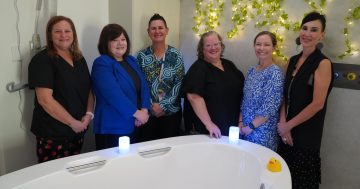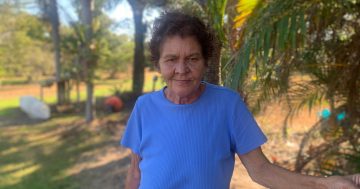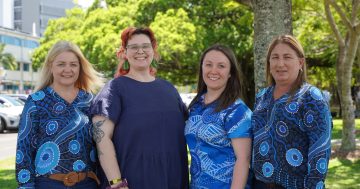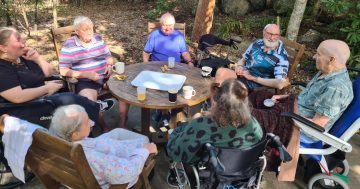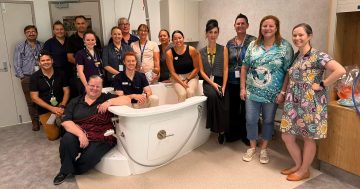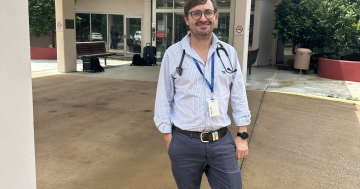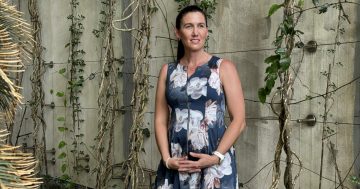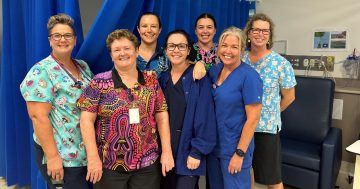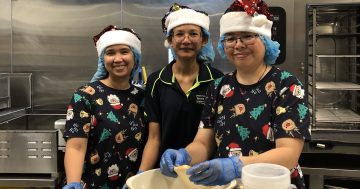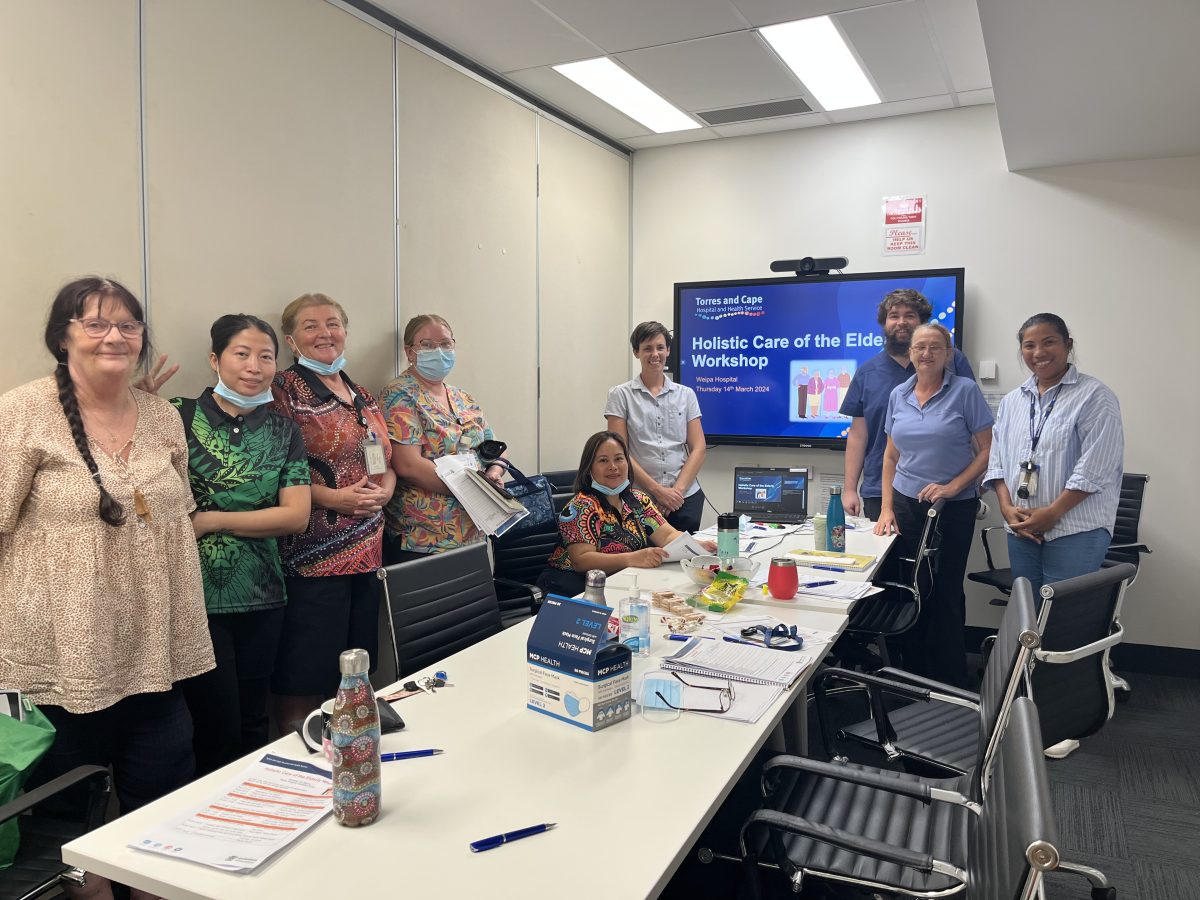
The inaugural Holistic Care for the Elderly workshop refreshed the minds of the team at Weipa’s aged care facility. Photo: Supplied.
For patients in their late stages of life, a “top-to-toe” approach to care is a priority at Weipa Hospital’s aged care facility.
Torres and Cape Hospital and Health Service (TCHHS) professionals presented and refreshed their care tactics at the inaugural Holistic Care for the Elderly workshop last month, and aged care clinical nurse Mihkahlia Proffitt said the gathering provided invaluable insight into what was working and what needed to be addressed.
“It was brilliant, not only for the presenters to find out the issues that we have, but it was also good for us, because they’re the allied health team and we heard about some of the limitations they’re under,” she said.
“We could come together as a group and work together as a team for the best of the residents and the people in communities looking at coming into residential aged care as well.”
The workshop explored a range of areas including medications, dignity and choice, dental care, nutrition and food, mobility, skin tears and palliative care.
“Holistic care is not just looking at one issue, it’s looking at the whole person and their wellbeing,” Ms Proffitt said.
“When you go into hospital, you’re going in because you’re unwell and they’re treating one component of you.
“With holistic care, we’re dealing with everything from their physical wellbeing to their social, emotional and cultural wellbeing, and making sure all of those things are in place to make sure these people are having an enriched life.”
Assistant in nursing (AIN) Ashleigh Lindley said in residential care, it was important to make the facility “feel more like home, rather than a hospital”.
“Our aged care is connected to a hospital, so it’s hard to separate those two things sometimes,” she said.
“We hang pictures in their rooms and it’s all bright and colourful and pretty.
“We also just make sure they’re well presented, too; we brush their hair every day, we dress them nicely, we put flowers in their hair, we put jewellery and perfume on.
“Every single person is different, so it’s about looking at that person and what they need individually to give them the best quality of life while they’re here with us.”
Although working in remote areas presented its own challenges, AIN Beverly Sterling-Whitty said she believed the smaller pool of people allowed for better teamwork and deeper understanding of patients.
“We see them first-hand for their whole day,” Ms Sterling-Whitty said.
“We greet them in the morning, we help feed them their meals and we help them shower, so we can see any changes in them.
“We’ll flag those changes to CN Mahkahlia, and we can work around it with the allied health team as well to make sure we’re working together for the best of the resident.”


